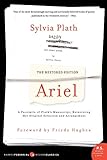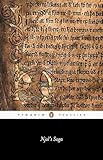 Avi Steinberg’s memoir Running the Books: Adventures of an Accidental Prison Librarian is the sort of book that you attempt to put down partway, only to wander around your apartment, disoriented, picking up random objects and placing them elsewhere for no reason, before finally relenting and returning to read. The premise, like the pace, is catchy, almost irresistible: Steinberg, former yeshiva student, Harvard graduate, freelance obituary writer, and (perhaps needless to add) self-proclaimed “loner and romantic,” takes a job running a Boston prison library and serving as the resident creative writing teacher.
Avi Steinberg’s memoir Running the Books: Adventures of an Accidental Prison Librarian is the sort of book that you attempt to put down partway, only to wander around your apartment, disoriented, picking up random objects and placing them elsewhere for no reason, before finally relenting and returning to read. The premise, like the pace, is catchy, almost irresistible: Steinberg, former yeshiva student, Harvard graduate, freelance obituary writer, and (perhaps needless to add) self-proclaimed “loner and romantic,” takes a job running a Boston prison library and serving as the resident creative writing teacher.
There is a voyeuristic thrill to peering inside a prison, not merely at the incarcerated, an isolated community of sinister and curious social outcasts, but at the entire mini-civilization – the guards, staff, rules, rituals – which all seem so foreign and exotic compared to our own. Television shows like Oz and Prison Break in particular capitalized on the dark glamour that prison holds for the outside, and did their part in shrouding it with as much urban mystique as The Sopranos did for mob life. We want to look in; we just don’t want to go in.
 But it’s through the eyes of a fellow outsider that we get to observe in Running the Books. With his orthodox Jewish upbringing and witty, literary reference-laden commentary, Steinberg, like many of his readers, clearly does not belong in a prison – on either side of the law – as much as he doubts this at times. Or as one inmate remarks, “You’re an undercover playa – I like that.” But this is exactly what renders the reading experience so much more honest: the book doesn’t force its readers to adopt a false attitude of worldliness and blasé to accommodate it; we’re afforded our natural reactions because they are more often than not Steinberg’s reactions. As a narrator, he is infinitely relatable. He likewise has naive and uselessly emotional responses to what amount to commonplace injustices. He is just as prone to passing superficial (though bitingly funny) judgments, as in the case of his first five creative writing students who remind him of the famous line from Leviathan, with which Thomas Hobbes envisions life without a central sovereign as being “solitary, poor, nasty, brutish, and short.” Writes Steinberg: “Here they were, reunited in one room, sitting in front of me: Solitary, Poor, Nasty, Brutish, and Short.”
But it’s through the eyes of a fellow outsider that we get to observe in Running the Books. With his orthodox Jewish upbringing and witty, literary reference-laden commentary, Steinberg, like many of his readers, clearly does not belong in a prison – on either side of the law – as much as he doubts this at times. Or as one inmate remarks, “You’re an undercover playa – I like that.” But this is exactly what renders the reading experience so much more honest: the book doesn’t force its readers to adopt a false attitude of worldliness and blasé to accommodate it; we’re afforded our natural reactions because they are more often than not Steinberg’s reactions. As a narrator, he is infinitely relatable. He likewise has naive and uselessly emotional responses to what amount to commonplace injustices. He is just as prone to passing superficial (though bitingly funny) judgments, as in the case of his first five creative writing students who remind him of the famous line from Leviathan, with which Thomas Hobbes envisions life without a central sovereign as being “solitary, poor, nasty, brutish, and short.” Writes Steinberg: “Here they were, reunited in one room, sitting in front of me: Solitary, Poor, Nasty, Brutish, and Short.”
Prison is not short for characters, and like Steinberg, you’ll find it impossible to remained detached. There is the female inmate who sees through the prison yard window that the son she abandoned as a child is incarcerated in the same walls; the convict who dreams of hosting his own hood cooking show “Thug Sizzle”; the gang of prison guard union buddies who call themselves the “Angry Seven”; the charismatic pimp whose memoirs Steinburg edits until learning the hideous truth about his past.
 As the prison librarian, the “Bookie,” Steinberg’s memoir is as much about the inmates’ interactions with literature as with himself. He assembles a Sylvia Plath shelf in the library at the request of her ardent (and depressed) female fans, which causes him no small amount of concern: “Ariel would never arouse the suspicions of myopic prison censors, who reserved the right to remove books of incitement and violence. But just because Ariel was art didn’t make it less dangerous — in fact, it made it potentially far more so.” Shakespeare month for the prison film group begins badly (“I can’t say I wasn’t warned. There was plenty of Shakespearian foreshadowing,”) until Othello (the Laurence Fishburne version) and Baz Luhrman’s Romeo + Juliet are explosive hits. One inmate tells Steinberg he will refuse to speak to him until he reads The Souls of Black Folks by W.E.B. Dubois. When he argues that he’s already read it, the inmate scolds: “Read it again…Cause you missed the whole point.”
As the prison librarian, the “Bookie,” Steinberg’s memoir is as much about the inmates’ interactions with literature as with himself. He assembles a Sylvia Plath shelf in the library at the request of her ardent (and depressed) female fans, which causes him no small amount of concern: “Ariel would never arouse the suspicions of myopic prison censors, who reserved the right to remove books of incitement and violence. But just because Ariel was art didn’t make it less dangerous — in fact, it made it potentially far more so.” Shakespeare month for the prison film group begins badly (“I can’t say I wasn’t warned. There was plenty of Shakespearian foreshadowing,”) until Othello (the Laurence Fishburne version) and Baz Luhrman’s Romeo + Juliet are explosive hits. One inmate tells Steinberg he will refuse to speak to him until he reads The Souls of Black Folks by W.E.B. Dubois. When he argues that he’s already read it, the inmate scolds: “Read it again…Cause you missed the whole point.”

 But literature is not merely interacted with in Running the Books; it is alive. In prison, as in literature, all of the flaws of our own society appear exaggerated, often even grotesque. Violence is as inescapable and inherent a mechanism of justice as it is in Icelandic blood feud literature like Njal’s Saga or Egil’s Saga. More than once Steinberg finds himself a victim of the Kafkaesque arbitrary and impenetrable bureaucracy that governs both inmates and staff alike. (Coincidentally, you might recall Steinburg’s name from Elif Batuman’s recent piece “Kafka’s Last Trial” for the New York Times Magazine, in which she and Steinberg visit the house of Eva Hoffe, longtime custodian of Kafka’s last manuscripts.)
But literature is not merely interacted with in Running the Books; it is alive. In prison, as in literature, all of the flaws of our own society appear exaggerated, often even grotesque. Violence is as inescapable and inherent a mechanism of justice as it is in Icelandic blood feud literature like Njal’s Saga or Egil’s Saga. More than once Steinberg finds himself a victim of the Kafkaesque arbitrary and impenetrable bureaucracy that governs both inmates and staff alike. (Coincidentally, you might recall Steinburg’s name from Elif Batuman’s recent piece “Kafka’s Last Trial” for the New York Times Magazine, in which she and Steinberg visit the house of Eva Hoffe, longtime custodian of Kafka’s last manuscripts.)
Nonetheless, it’s the words of the inmates themselves – whether in “kites,” secret notes that prisoners hide for one another in library books, and through “skywriting,” words spelled out backwards by male prisoners in the yard toward female prisoners’ windows – that are most affecting. We know prison to be something of a “Civil Death,” that the political (and to a great extent legal) voices of inmates go unheard. But Steinberg, who retains a reverence for the written word from his years studying the Torah, is consumed by how often the words of prisoners go unread. Kites must be unearthed and confiscated: “Books are not mailboxes,” a sign fastened to the library walls grimly declares. Skywriting, where it’s never quite clear who is signaling to whom, let alone what words they are spelling, is as predestined for misinterpretation, confusion, and jealousy as the communications in a French farce. And words from the inside out are equally unfortunate: it is not easy to write letters home from prison (in fact, one inmate runs a successful freelance poetry business designed to ease this burden), and prisoners often end up shredding or abandoning letters to loved ones.
Why do people write, knowing they might ultimately be writing to no one? And what is the worth of all of these words that are doomed to go unread?
For days I kept imaging the fate of the world’s misplaced letters. I started noticing them everywhere. All the right letters sitting on desks and dressers, slipped into purses, abandoned in email Draft folders, forever sealed and unsent…And the wrong letters, placed in someone’s hands – which, once delivered, may never be taken back. Emailed and immediately regretted. When I looked around the world, I couldn’t see these letters. But I became aware of their indirect presence. They contained life’s great subtexts… bound to a person by an almost invisible string. Even the unsent ones are very much present. Especially the unsent ones.
On one level, Running the Books is effortlessly readable. The stories weave in and out of each other, and through this the narrative turns compulsive: you need only become invested in one power struggle, one absurd operation, one hopeless endeavor to become invested altogether. But there is a profound weight to the memoir, too. Steinberg is not merely relatable as a narrator; he relates – his frustration, his ego, his susceptibility – and as my endless stretches of page-turning inevitably gave way to wandering about my apartment, I realized it was Steinburg’s own disorientation that I was feeling.
In the moral ambiguities of prison, the comforting ideals of “good” and “right” are luxuries that have no place. They provide useless road maps. And yet, Steinberg must still aim for something. He must still retain some grace. Even then, his efforts often amount to nothing, or worse. You might not agree with all of his decisions, but you spare him censure because he is a far harsher critic of himself. And you cannot deny that he is trying really, desperately hard.
For all of its vivid characters, Running the Books is thus ultimately a book about character, a virtue most notable for the constant (and often wasted) effort it requires to be maintained. In literature, as in prison, all of the flaws of our own society appear exaggerated. But, however muted, the flaws here are the same. Life on the outside is just as rife with vulnerability, doomed optimism, moral ambiguity, and unsatisfactory compromise. And with this insight, when you re-enter society from the haze of a book, you orient yourself once more.









